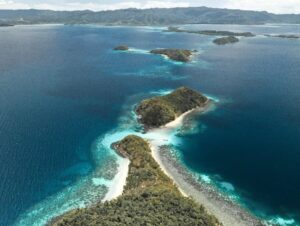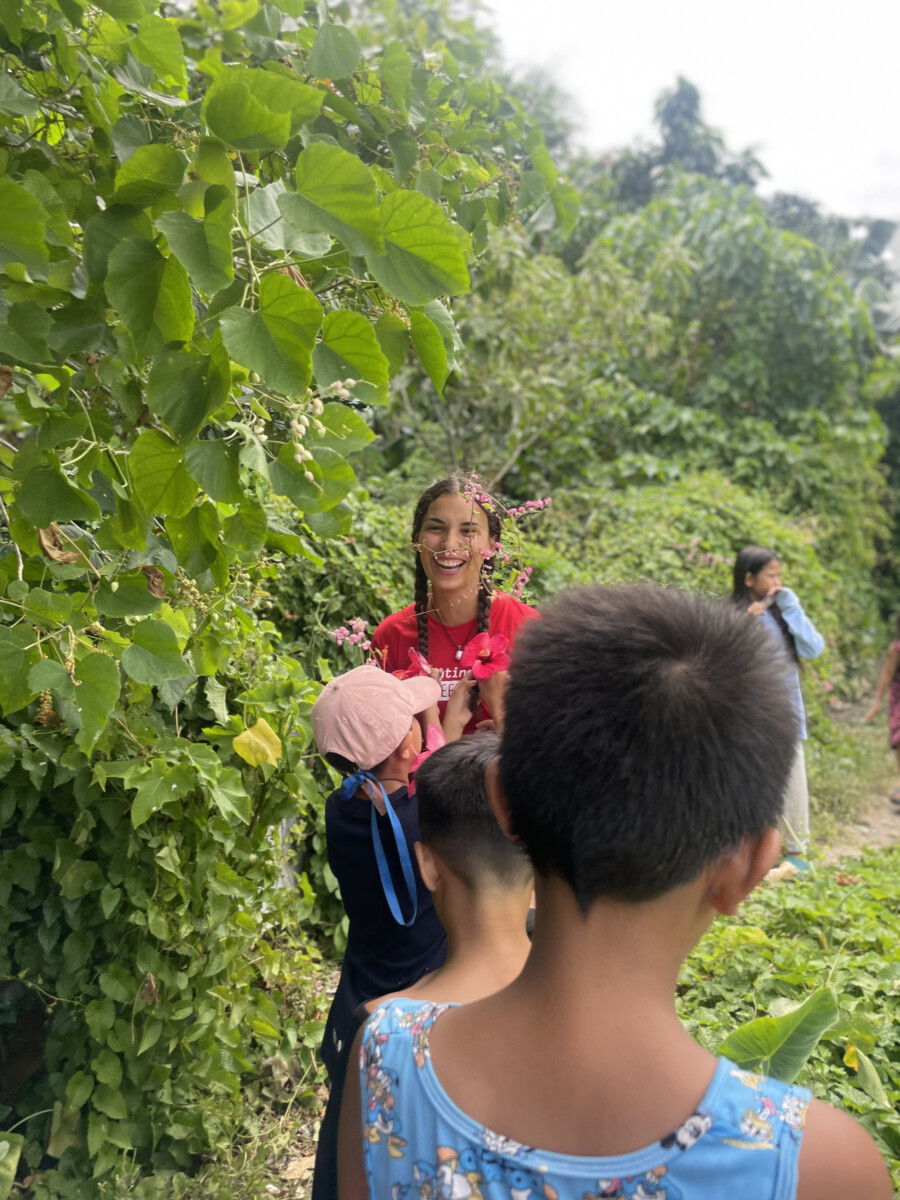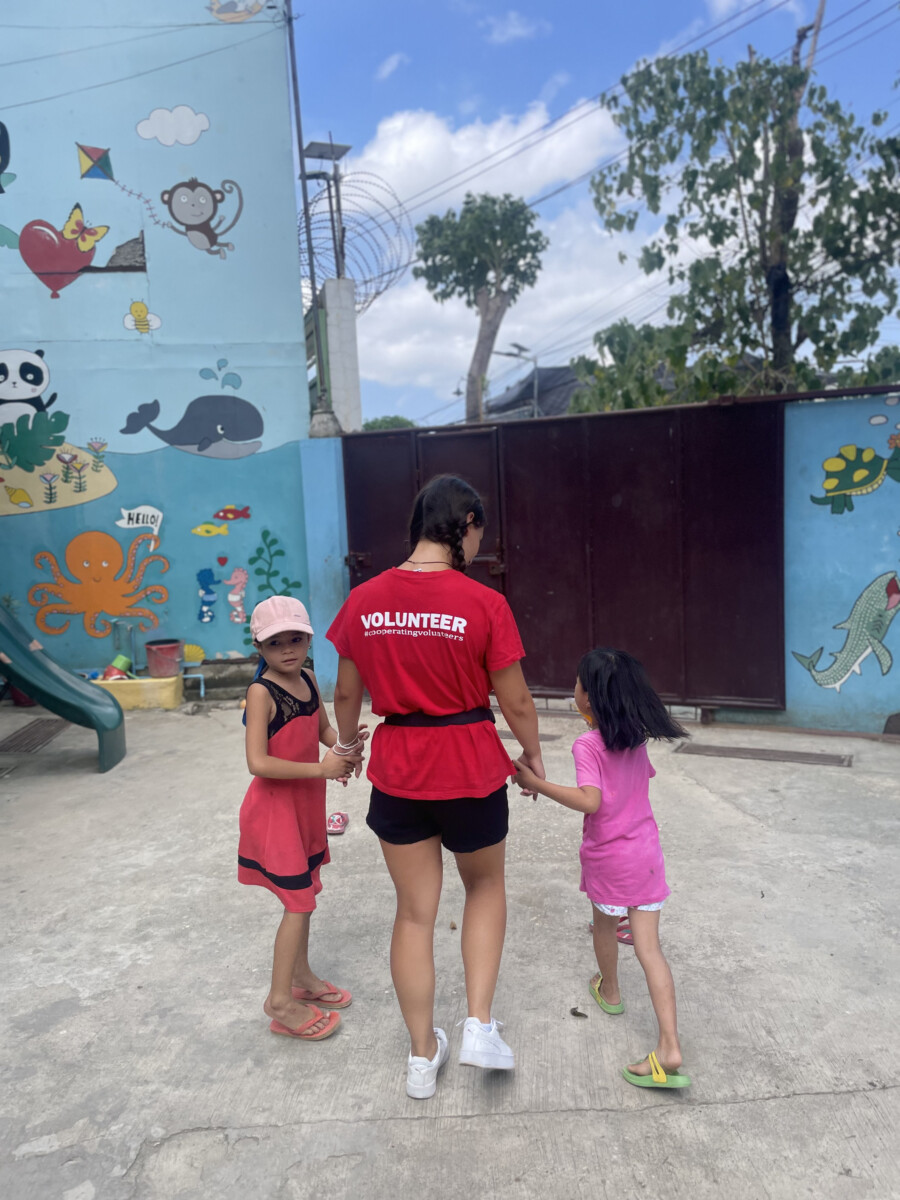Menu Apply

The Philippines are comprised by 7,107 different islands, of which only 2,000 are inhabited. Broadly speaking, the islands fit into one of three main geographic divisions: Luzon, Visayas and Mindanao. It is the 7th most populated country in Asia, and the 12th most populated country in the world.
As a recently industrialised country, the Filipino economy, which was once founded on agriculture, is slowly moving towards becoming a manufacturing and service-based economy.
Not surprisingly, the Philippines attracts tourists because of the incredibly rich biodiversity found on all its islands. The country’s mountains, tropical jungles, diving spots and impressive cultural heritage are just some of the reasons that make it an incredible place to visit.
The Philippines has a warm climate all year round, with temperatures usually ranging between 77°F and 90°F. The dry season lasts from approximately November to May, while between June and October the country experiences the monsoon season, which means that heavy rains can occur, especially in the afternoons. Although these rains are usually short-lived, it is important to take this into account when planning your trip and activities.

The Philippines Standard Time Zone is Philippine Time (PHT), which is UTC+8.

The official currency is the Philippine peso (PHP), with 1 euro equating to 61.2 PHP.

Programs are located on Siargao Island

The program schedules may be modified depending on weather conditions, local circumstances, and unforeseen circumstances.

Three typical Filipino meals are offered daily. Traditional Filipino food will mainly consist of lots of vegetables, meat, egg and rice; and will be served at the accommodation.

Airport pickup is included, but the return is not; the cost of returning to the airport is approximately 20€.


Programs in the Philippines are located on Siargao Island. Siargao is a unique island, dotted with fishing villages and surrounded by a stunning blue sea. Its scenery contrasts beautifully with the mountains, fields, and forests that shape its landscape.
Accommodation is provided in a community center on Siargao Island.
Participants should arrive at Sayak Airport (IAO) on Fridays, at any time.
Participants must arrive on Fridays at Sayak Airport (airport code: IAO), where they will be picked up by local staff and subsequently transferred to the accommodation.
Volunteers are given three typical local meals every day. Traditional Filipino cuisine broadly consists of lots of vegetables, meat, eggs and rice. These meals will be served in the accommodation.
Bike taxis
This is a type of push tricycle which is particularly useful for short journeys.
Habal-Habal
These are motorbike taxis, which tend to be a tad cheaper than bike taxis.
Jeepney
These are basically modified military jeeps that were left abandoned by American soldiers after the Second World War. They are often painted with images of the Virgin Mary and/or scenes from comic books. In most cities, jeepneys are the main form of urban transport. They also represent an alternative to travelling by bus for longer journeys between regions. Despite being popular amongst locals, the small windows make jeepneys unsuitable for sightseeing.
Bus
These come in various shapes and sizes. Bus stops are common in all cities and rural areas, although buses may only run in the morning in rural areas.
Mini-vans
There is often a downside to this form of transport. Despite being quicker than traditional buses, you will often have to wait for the mini-van to fill up before it starts its journey. They may also be more expensive than buses, with less leg room.
Participants must arrive in the Philippines on Fridays at any time to be transferred to the accommodation, rest, and begin their program on Monday.
The weeks run from Friday to Friday, so you should book flights to arrive in Siargao on a Friday and depart on a Friday.
The cost of the volunteer experience program starts at €280 per week, depending on the program. You can find all the details under “Program Costs.”
Siete Pecados Marine Park
Explore the vast coral reefs and schools of fish in the Siete Pecados Marine Reserve.
Kingfisher Park
An ideal spot to see fireflies, hundreds of stars, and enjoy kayaking after sunset
The Teaching Support Program takes place at a school that serves children from preschool age through the end of primary education. The support is organized into different areas, based on the participants’ knowledge and the students’ ages. Informal English lessons are held, allowing participants to assist with activities such as music, songs, games, arts, sports, conversation exercises, and grammar drills. Special emphasis is placed on strengthening reading and writing skills, as these are key areas in need of improvement among the students. Additionally, Spanish lessons are organized, where participants who are native speakers are expected to be proactive in creating the lessons.
Objectives:
During this program, you will have the opportunity to collaborate in the daily tasks of an organic farm that practices permaculture. This farm serves as an educational hub for the local community and for anyone interested in developing sustainable and self-sufficient agriculture and livestock practices.
You will assist the farming community by providing extra hands and effort, while also experiencing cultural immersion and engaging with the local community.
Some of the tasks include:
When volunteers arrive at Sayak Airport, the local team will pick them up and accompany them to the house where they will be accommodated and spend the following days with the other participants. Our accommodation is located on Siargao Island.
There is no hot water in our accommodation, but it is not necessary due to the heat and humidity of the island. Given our tropical environment, the internet service may not be what you’re accustomed to at home. At times, it may be inaccessible due to the weather, but you can get your own eSIM card before traveling to the Philippines or purchase a local SIM card with data.
The accommodation includes three meals a day, from Monday to Sunday. Volunteers will enjoy traditional Filipino food such as vegetables, meat, eggs, or fish, always accompanied by staple ingredients in Filipino cuisine like rice or noodles.
The total cost of the volunteer program is divided into two parts. The registration fee, paid to book your placement in the program, costs 210 EUR, while the program fee is paid afterward.
€280 per week
If your currency is not specified in the list, you can convert the costs here.
Visa, flights, travel insurance (obligatory), vaccines, return to the airport, and other personal expenses.
| Address: | New York, United States |
| Address: | Avinguda Carrilet, 3, Edifici D, planta 2a, 08902 L’Hospitalet de Llobregat (Barcelona) |
| Phone: | +34 931 890 904 - Office- Barcelona |
| Email: | hello@cooperatingvolunteers.com |
| WhatsApp: | +34 671 94 28 89 |

Cooperating Volunteers, S.L. All rights reserved © 2014
Leave us your information and we will contact you within the next 24 hours
Our volunteers will be able to validate university credits with the aim of traveling in a more responsible and economical way.
What does volunteering focused on university practices involve?
At Cooperating Volunteers, we make agreements with different universities to validate university credits with the aim of traveling in a more responsible and economical way.
The specialties we work with are extensive: medical volunteering, nursing, education, social work, psychology, physiotherapy, engineering, architecture…
The practices can be carried out in our designated destinations for this purpose, as well as in Spain.
If you choose an international destination, it’s a unique way to live an unforgettable and enriching experience, as you will have the opportunity to continue your education in another country, with a completely different culture.
Stepping out of our comfort zone and being part of the various projects at the destination will allow us to grow both personally and professionally, creating a more extensive curriculum.
And we are fully convinced that this experience will accompany you throughout your life.
You will be able to visit hospitals, schools, centers, orphanages, and participate directly and actively in the daily lives of all those people at the destination, always accompanied by other professionals willing to collaborate hand in hand with you and guide you in daily tasks.
If your university is not part of the agreement with Cooperating Volunteers, you can contact cristina@cooperatingvolunteers.com so that we can get in touch and make this experience a reality.
Corporate volunteering consists of tailored programs for your company, designed to develop teamwork skills.
It is proven that teamwork directly impacts productivity.
Collective effort surpasses individual capabilities, promotes diversity of skills, stimulates creativity, and facilitates problem-solving in the face of various challenges.
Therefore, it not only maximizes efficiency but also enriches the work environment.
We conduct corporate volunteering programs that consist of customized programs for your company, designed to develop teamwork skills, improve performance, and foster unity among employees.
We tailor projects to the corporate identity and size of the company, and we can adjust them to any destination and time of the year.
The advantages of corporate volunteering include:
The future is aligned with a more responsible society, and participating in social projects positions our company among the list of revolutionary businesses that want to be part of the change.
If you resonate with this message, corporate volunteering is a unique experience both individually and collectively, and at Cooperating Volunteers, we accompany you throughout the process to make it a unique journey.
Quality time spent with family strengthens emotional bonds, promotes communication, and contributes to the emotional well-being of its members.
Spending quality time with family and being able to disconnect from our hectic routines is not only enriching but also necessary.
Sometimes we forget to communicate, connect, and dedicate time to each other. Each one of us lives focused on our jobs, schools… And it’s necessary to find the opportunity to pause and take care of ourselves.
Quality time spent with family strengthens emotional bonds, promotes communication, and contributes to the emotional well-being of its members. And of course, it creates lifelong positive memories.
At Cooperating Volunteers, we suggest moving away from those ‘more superficial’ trips (which can also be fantastic), but we invite you to live this experience to bring out our most empathetic and humanitarian side.
Family volunteering gives us the opportunity to be part of a positive impact, promoting values of solidarity and social responsibility.
There are many families who choose to experience these trips focused on cooperation and direct involvement with different communities around the world, where living conditions are very different and sometimes entirely precarious.
Projects are tailored to different ages, allowing us to work together.
An incredible way to fill our suitcase with memories, learning, and knowledge.
And although stepping out of our comfort zone often feels daunting, we assure you firsthand that it’s worth it.
At Cooperating Volunteers, we accompany you throughout the entire experience, from start to finish, to make it unforgettable.
At Cooperating Volunteers, we believe it’s never too late for anything, especially for volunteering and living a unique and unforgettable experience.
There are many people, increasingly so, who opt for responsible travel that involves social work.
Accustomed to organized and mostly touristic trips, at Cooperating Volunteers, we want to advocate for a more enriching experience, one that transforms us from within and allows us to be part of the change the world needs to see.
We can adapt both the destination and the duration of our projects to fit your needs.
It’s an opportunity full of emotions that allows us to significantly contribute to different communities and their evolution. And you can participate in different areas such as education, social support, or assistance in different centers.
Some of the benefits include:
Living this experience will undoubtedly be a before and after.
A volunteering initiative with leadership and impact through the educational action program.
When we talk about social volunteering, we refer to all those actions and activities carried out altruistically, selflessly, and with the aim of addressing multiple problems and needs of different communities, always focused on education and self-sufficiency.
Education is essential because it provides the tools and knowledge necessary for personal, social, and economic development.
Our goal is to create self-sufficient communities and provide opportunities for the future personal development of each member. The message is not to ‘give’, but to accompany in the process of training for self-managed provision.
At Cooperating Volunteers, many of our destinations and projects embrace this type of volunteering. Some of our projects include: community programs, education, women’s empowerment…
And although they are completely different from each other, they share a single objective: progress towards a society that can embrace us all in the same way.
If you are someone who is restless, who needs to see a change in the future, volunteering is an experience tailor-made for you.

